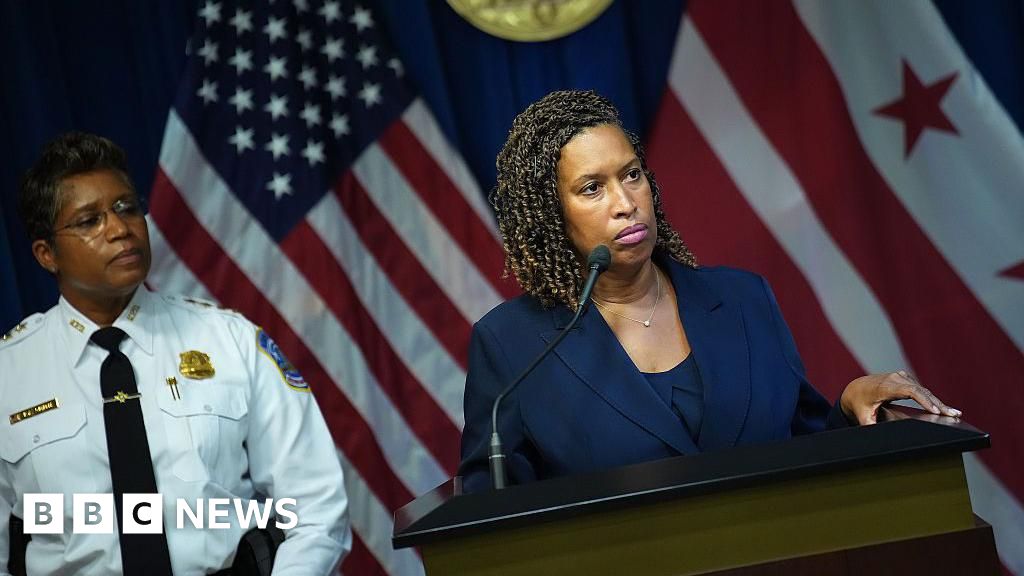
More than 1 100 young musicians from across South Africa and Zimbabwe came together in Cape Town to break the record, after two years of planning.
- A group of young marimba players has set a new world record.
- The more than 1 100 musicians played during an event in Cape Town at the weekend.
- The event looked to promote unity through breaking socioeconomic barriers.
“It’s impossible to feel sad when you play marimba.”
Coordinator Kiara Ramklass said this was the joy that more than 1 100 young musicians set out to capture when they broke the Guinness World Record for the largest marimba ensemble.
Ramklass added that the 1 177 young musicians from across South Africa and Zimbabwe came together in Cape Town to break the record after two years of planning.
An official adjudicator from Guinness oversaw the event.
Ramklass said every participating child would receive an official gold medal from Guinness World Records.
“It was really an amazing moment of unity for us to come together on Saturday and break this world record. The theme of the evening was ‘united in harmony’, and I think that spoke to the greater cause behind this world record.
“The marimba is present in almost every part of society, so we all came together to play this beautiful instrument, transcending socioeconomic barriers. I think it was just palpable, that feeling of unity and ubuntu,” she added.

More than 1 100 young musicians from across South Africa and Zimbabwe came together in Cape Town to break the record, after two years of planning.
Ramklass described the marimba as a “community instrument” that united people.
“You need the bass player, the tenor player, and the soprano player to make a full sound. The marimba is a community builder, and it was really beautiful for us to bring together the marimba community to achieve this beautiful record altogether.”
Ramklass fell in love with the marimba at the age of 12.
“I also learned other musical instruments at school, like the flute and trombone. But the marimba was just this one instrument that I really just loved. Every Tuesday afternoon, I would wait for my marimba lesson,” she said.
Ramklass continued:
The marimba has got such a beautiful, warm sound that just makes me feel at peace, at ease. Just the way that you play this instrument, the physicality involved, is a way to de-stress. It was more than just an instrument; it was like I was a part of home.
Inspired to share her love of marimba, Ramklass started Marimba Jam in 2012 as a Grade 11 pupil wanting to make an active change to address the inequality in music education in her community.
Marimba Jam provides access to the psychological and social benefits that accompany the joy of playing in a marimba band.
The project initially consisted of a week-long marimba workshop during the school holidays with 10 girls from Zimasa Secondary School in Langa, Cape Town, an under-resourced school.
However, a decade later, Marimba Jams employed more than 20 part-time student teachers, who teach 500 pupils from 13 schools across the Western Cape.
“It was a small community project to share this love of marimba. And I then started teaching marimba bands at the university. It grew into a social enterprise, where we now teach over 500 learners weekly. We have a branch in Johannesburg now. And when our learners matriculate, they join what we call the Marimba Jam Academy, and now we train as professional teachers and marimba players in the industry,” Ramklass said.

More than 1 100 young musicians from across South Africa and Zimbabwe came together in Cape Town to break the record, after two years of planning
She added that the marimba was an accessible instrument, because players did not need to know how to read music to play it.
“For many of the children we teach, it’s their only way of experiencing the benefits of learning musical instruments at school. That includes learning teamwork and confidence, and cognitive development. In some communities, there are not many opportunities for these kids. Marimba gives them something to focus on, so they are not drawn into negative spaces. The broader impact is huge.”
If you have great school stories to tell, email feelgood@news24.com.
Newsletter
Weekly
Wake Up To Good News
Good News editor Paul Herman delivers a morning round-up of stories that remind you why you fell in love with South Africa.
 (1).png)
 1 week ago
7
1 week ago
7

















